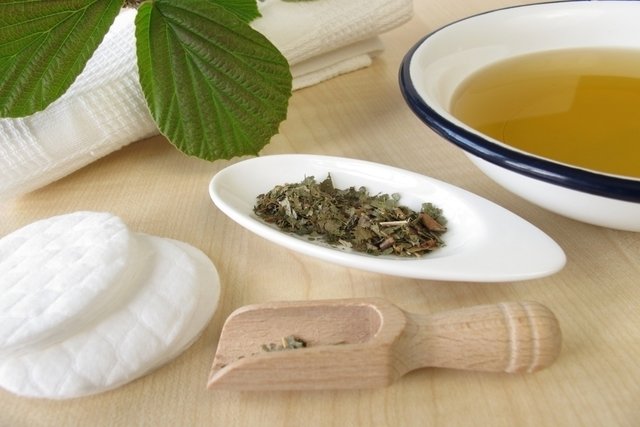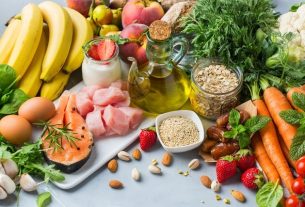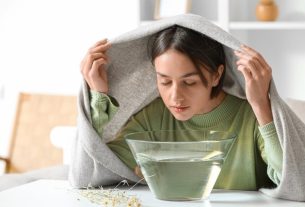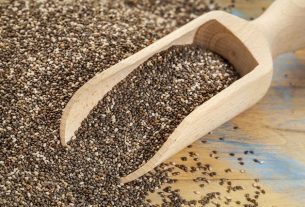Teas recommended to help treat hemorrhoids include horse chestnut, rosemary, chamomile and elderberry tea, which can be used to drink, make compresses or sitz baths.
These teas have anti-inflammatory, vasoconstrictive and analgesic properties, helping to reduce the pain, discomfort, itching and burning that hemorrhoids cause.
However, it is essential that these teas are used together with a diet rich in fiber, including fruits, vegetables and whole grains, as they improve intestinal transit, reducing the pain and discomfort of hemorrhoids. See how to follow a hemorrhoid diet.

1. Horse chestnut tea (to drink)
The horse chestnut (Aesculus hippocastanus) has anti-inflammatory and vasoconstrictor properties and can be indicated to relieve swelling and pain from hemorrhoids. Learn more about horse chestnut.
Ingredients:
- 30 g of horse chestnut leaves;
- 1 liter of water.
Preparation mode:
Boil water in a pan or kettle. When turning off the heat, add the horse chestnut leaves, cover the pan and let it rest for 10 minutes. Strain and drink 1 cup up to 3 times a day.
Care: This tea cannot be consumed during pregnancy, breastfeeding, or by children. Furthermore, this tea is not recommended for people who use anticoagulant medications, as it increases the risk of bleeding.
Consumption of this tea by people with diabetes should be guided by a doctor or nutritionist, as it is an herb that can influence blood sugar levels. Furthermore, people with digestive problems should also consult their doctor before consuming this tea, as it can cause irritation to the digestive tract.
2. Rosemary tea (to drink)
Rosemary tea has anti-inflammatory and circulatory substances, helping to treat hemorrhoids, and can also be used to reduce PMS symptoms, treat colds and flu and relieve canker sores and muscle pain. Discover other benefits of rosemary tea.
Ingredients:
- 5 g of fresh rosemary leaves;
- 200 ml of water.
Preparation mode:
In a pan, put the water to boil. After turning off the heat, add the rosemary leaves, cover the pan and let it rest for 5 minutes. Strain and drink up to 3 cups of this tea per day.
Care: This tea is not recommended for children under 12 years of age, pregnant or breastfeeding women. People with liver disease, epilepsy or who use anticoagulant, diuretic, lithium and antihypertensive medications need to consult their doctor before using this tea.
3. Elderberry tea (for sitz bath)
Elderberry tea has anti-inflammatory properties that help alleviate hemorrhoid symptoms. check out
Ingredients:
- 80 g of elderberry leaves;
- 1 liter of water.
Preparation mode:
Place all the ingredients in a pan and boil for about 5 minutes. Leave to cool, strain and take warm sitz baths twice a day.
Care: This tea should not be used by children, pregnant or breastfeeding women.
Furthermore, elderberry leaf tea should not be ingested orally, as it can cause poisoning, due to the presence of lectin and cyanide in its composition.
4. Witch hazel tea (for sitz bath)
Witch hazel tea is anti-inflammatory, astringent and anti-hemorrhagic, helping to alleviate the symptoms of hemorrhoids.
Ingredients:
- 2 tablespoons of witch hazel peels;
- 1 liter of water.
Preparation mode:
Boil the water and witch hazel for 10 minutes. Strain the drink, let it cool and take a warm sitz bath once a day.
Care: This sitz bath is not recommended for pregnant or breastfeeding women. This tea is also not recommended for children under 12 years of age. It is not recommended to consume this tea orally, as it can cause digestive changes.
5. Chamomile tea (for compresses)
Chamomile tea has healing and anti-inflammatory properties and can help treat hemorrhoids.
Ingredients:
- 1 tablespoon of dried chamomile flowers;
- 1 cup (tea) water.
Preparation mode:
Bring the water to a boil, turn off the heat and then add the chamomile flowers. Cover the pan and let it rest for 5 minutes. Let it cool, strain the tea and wet a clean cloth, applying it to the affected area for about 15 minutes.
Care: chamomile tea is not recommended for people allergic to chamomile or other plants from the same chamomile family, such as chrysanthemum, daisy, marigold or ragweed, for example. Topical use of this tea is only recommended for children over 12 years of age.
6. Tea Lippia alba (for compresses)
A Lippia albaalso called Brazilian lemon balm or false melissa, contains alkaloids and tannins with antioxidant, analgesic and healing effects, helping to reduce pain and reduce hemorrhoids.
Ingredients:
- 30 to 50 grams of dried leaves of Lippia alba;
- 1 liter of water.
Preparation mode:
Put the water on the fire and let it boil. Then, turn off the heat and add the dry leaves of Lippia alba. Cover the pan and let it rest for 5 minutes. Let it cool, strain the tea, wet a clean cloth and apply it to the affected area for about 15 minutes.

Sign up for our newsletter and stay up to date with exclusive news
that can transform your routine!
Warning: Undefined array key "title" in /home/storelat/public_html/wp-content/plugins/link-whisper-premium/templates/frontend/related-posts.php on line 12
Warning: Undefined array key "title_tag" in /home/storelat/public_html/wp-content/plugins/link-whisper-premium/templates/frontend/related-posts.php on line 13



